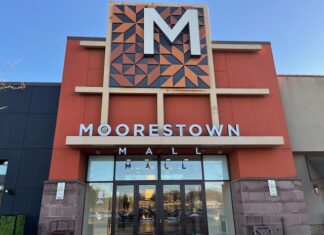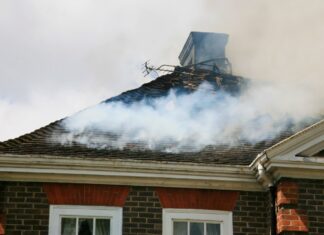
CONTACT’s Sexual Assault Services division is currently seeking volunteers to become Confidential Sexual Violence Advocates.

Jillian Allen, sexual assault services program director at CONTACT of Burlington County, said one thing she’s learned by working at CONTACT is a positive outcome for survivors of sexual assault increases with support and belief. CONTACT is looking for volunteers who are willing to help provide that support.
Based in Moorestown, CONTACT is the designated provider in Burlington County for the National Suicide Prevention Lifeline and the Rape, Abuse & Incest National Network. CONTACT’s Sexual Assault Services division is seeking volunteers to become confidential sexual violence advocates. Allen said advocates man CONTACT’s Sexaul Assault Services support line and accompany survivors to hospitals, police stations and court.
No experience is necessary, and volunteers will receive 40 hours of training to equip them for the role. Volunteers must be at least 18 years of age and have to pass a background test.
Staff at CONTACT use guidelines from the New Jersey Coalition Against Sexual Assault, and along the way, trainees are asked to complete reflection questions that prepare volunteers to work with survivors in a healthy way for both themselves and the survivor. Upon completing training, volunteers receive the title of “Confidential Sexual Violence Advocate.”
Volunteers sign up to work during four-hour blocks of time. Allen said advocates are encouraged to volunteer for at least four shifts a month, but most volunteers are eager to work more than four. Volunteers provide phone support on their own personal phones through a blocked number to provide confidentiality for both volunteers and victims.
Through CONTACT’s sexual assault services hotline, someone is on call 24 hours a day, seven days a week. Their first time accompanying to a hospital or police station, advocates are joined by a staff member who helps guide them through the process.
Allen said no two survivors’ experiences are the same, and so advocates learn how best to provide support along the way. For advocates, this could meaning going with survivors to file a police report or being nearby during a forensic exam.
“We’re not legal advisors. We don’t handle evidence,” Allen said. “Our role is really just making sure if they do come forward, they’re aware of all the options they do have, and that they are in charge of making the decision.”
Much of an advocate’s role is providing information, Allen said. This means letting survivors know they are not required to file a report or agree to a forensic exam. She said advocates let survivors know they have these options, but they also have a say in the process.
Advocates also follow up with after care and connect survivors with local services.
There is no set timeframe for healing, but more often than not, survivors will feel like coming forward was worth it if someone was in their corner. She said survivors need someone to believe them and support them, Allen said.
She said CONTACT’s goal is to let people know these assaults happen can happen anywhere, and people of every background need support.
“I think that it is a really normal thing as human beings to say that this isn’t happening where I live or that it only happens in these types of communities or that type of town, but really, it’s happening everywhere,” Allen said.
Recently, CONTACT has seen a greater variety of people giving their time. Allen said in years past, many of CONTACT’s volunteers were people who worked part time. She said today, they’re seeing more volunteers with busy schedules who want to “help with this cause.”
Allen said she wants people on the fence about volunteering to know it’s normal to feel nervous or uncomfortable.
“The only requirement is just to be willing to help another human being,” Allen said.
CONTACT is accepting applications for its next training session, which will take place at its Moorestown location at the end of February or beginning of March, Allen said. To protect victims, CONTACT’s location is confidential from the public.
Interested individuals can email [email protected] or call (856) 234–5484 ext. 101. Applications can also be found on CONTACT’s website at http://contactburlco.org.









